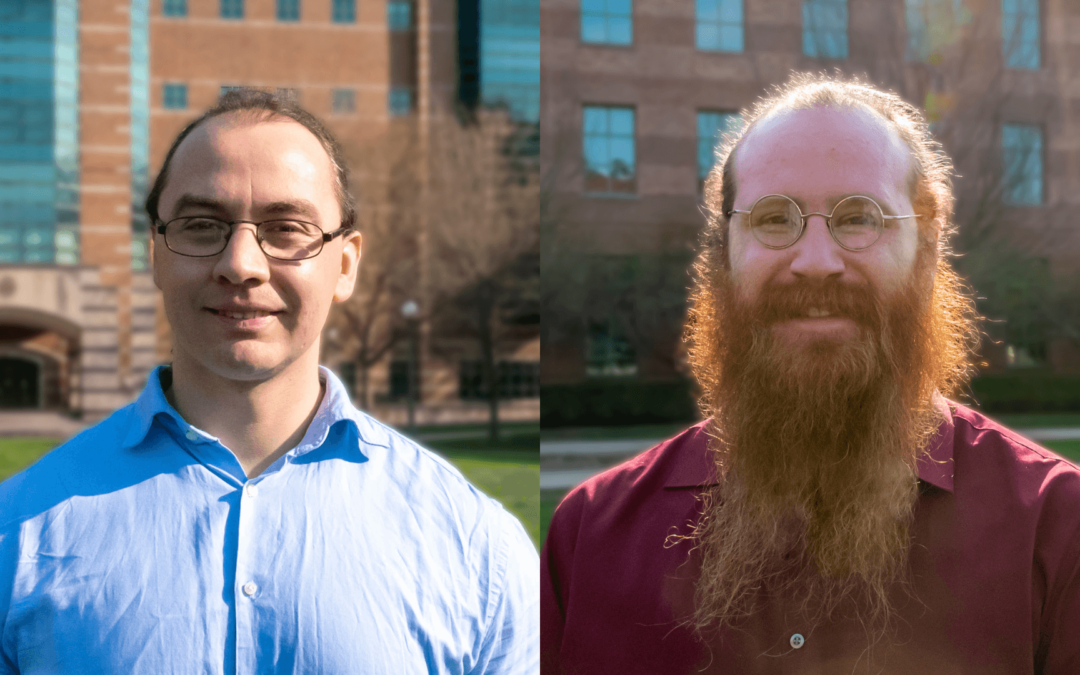CCIL – Beckman Institute Fellows Alejandro De la Cadena and Zane Thornburg.
In fall 2023, the Beckman Institute Postdoctoral Fellows Program will welcome two Cancer Center at Illinois (CCIL) postdoctoral researchers to its inaugural class of CCIL – Beckman Institute Postdoctoral Fellows. The new fellowship will support projects that bridge engineering and basic cancer sciences. Fellows will work with faculty mentors from the CCIL and the Beckman Institute to develop transdisciplinary skills that support their career development.
Alejandro De la Cadena (Ph.D. in chemistry and earth sciences, Friedrich Schiller University Jena) is working on understanding triple-negative breast cancer, a rare and aggressive form that emerges in less than 20% of cases and is notoriously difficult to target and treat. As a CCIL – Beckman Institute Postdoctoral Fellow, he will use advanced microscopy techniques to scrutinize the tumor microenvironment; specifically, the tumor-suppressing properties of a nuclear receptor called TLX. Learning more about how the TLX receptor works will help inform future investigations focused on targeting the cancer with drugs and therapies, while also contributing valuable medical imaging tools to be used in future diagnostics.
His project, “Mapping the phenotypic signature of the nuclear receptor TLX in TNBC,” will be conducted in collaboration with Beckman and CCIL Program Leader Stephen Boppart, CCIL researcher Erik Nelson, and CCIL Director Rohit Bhargava.
Zane Thornburg (Ph.D. in physical chemistry, UIUC) will use whole-cell modeling to simulate a population of yeast cells, investigating how genetic modifications and environmental changes might cause variations between cells of the same population. By accurately simulating how the cells move and change in the face of environmental stimuli, the model will generate valuable information about yeast cells as well as insights about modelling that will allow the technology itself to advance.
Thornburg’s project, “3D whole-cell models of yeast and quantifying cell-to-cell variations,” will be conducted in collaboration with CCIL researcher Emad Tajkhorshid and CCIL Director Rohit Bhargava.
“I’m excited to work at the forefront of biological computation and push the limit of what is currently possible!” said Thornburg.

